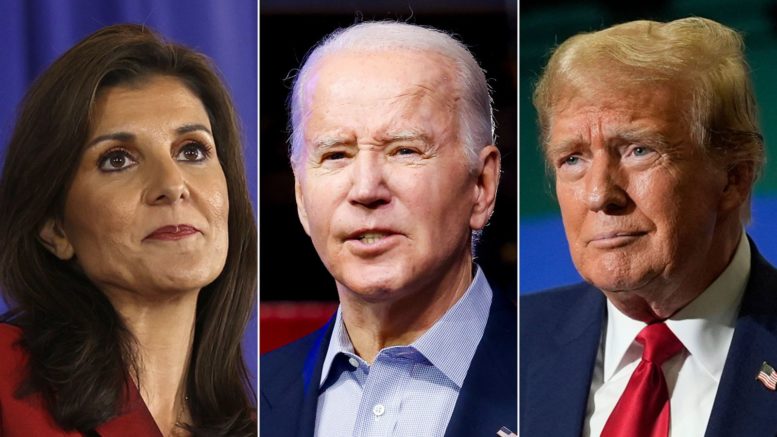President Joe Biden and former President Donald Trump made significant strides toward formalizing what appears to be an inevitable rematch, each securing substantial wins on Super Tuesday. With over a dozen states holding primaries or caucuses, it marked the most significant day in the nominating races of the 2024 presidential campaign, leaving behind the gradual progression through early-voting states.
Both Biden and Trump encountered familiar indicators of potential weaknesses for the general election: progressives opting for “uncommitted” over Biden, and college-educated suburbanites favoring Haley over Trump. However, both candidates also had much to celebrate as they neared securing their parties’ nominations with near-sweeps.
Trump’s Continued Dominance
Despite losing Vermont to Nikki Haley, Trump maintained his dominance in the Republican nominating contest. While the 15 states voting on Tuesday didn’t provide enough delegates for Trump to clinch the nomination, he significantly closed the gap, leaving Haley with limited prospects.
With a substantial delegate count in his favor, Trump’s victory speech at his Mar-a-Lago resort in Palm Beach highlighted the significance of Super Tuesday. Although he avoided mentioning Haley directly, his earlier criticisms of her suggested tension within the Republican Party.
Biden’s Strong Showing
Despite facing challenges and low approval ratings, Biden continued to dominate the primaries, securing around 80% of the vote in most contests. While some progressive voters expressed discontent, Biden maintained strong support among the Democratic rank-and-file.
However, Biden’s support for the Israeli offensive in Gaza sparked criticism, leading to significant protest votes in several states. These protests underscored the importance of addressing contentious issues within the Democratic Party.
Warning Signs for Trump
Despite Trump’s victories, there were warning signs for his campaign, particularly concerning support in suburban areas and among college-educated voters. While he won key demographics, Haley’s performance in certain regions hinted at potential vulnerabilities for Trump in the general election.
Biden’s Challenges
Biden faced challenges stemming from his stance on the Israeli offensive in Gaza, which led to significant protest votes in some states. These protests highlighted the need for Biden to address internal divisions within the Democratic Party and win over critical constituencies.
Haley’s Silence
Despite previous attempts to shape the narrative of her campaign, Haley remained silent on Super Tuesday as Trump secured victory after victory. Efforts to persuade her to withdraw from the race intensified, signaling the state of the GOP nominating contest.
Additional Highlights
Super Tuesday brought little drama aside from a close race in Vermont and a surprise in American Samoa. Jason Palmer’s victory over Biden in American Samoa drew attention, despite its minimal impact on the overall race.
North Carolina emerged as a battleground, with implications for both the presidential race and the governor’s contest. Robinson’s divisive persona and the abortion debate could sway the outcome in this closely divided state.
In North Carolina’s 1st District, Buckhout’s primary win boosted Republican hopes of defeating Democratic incumbent Don Davis. The race remains a toss-up, highlighting the competitive landscape ahead of the general election.

